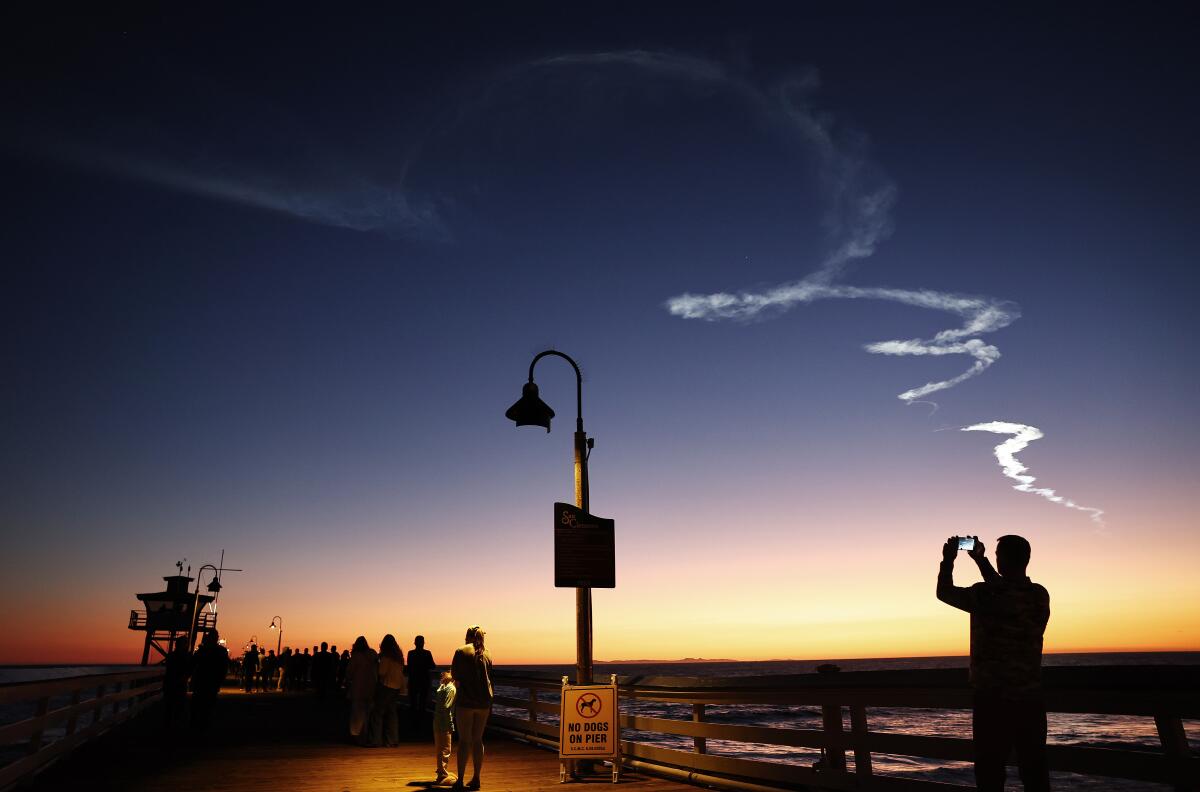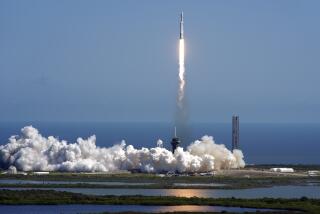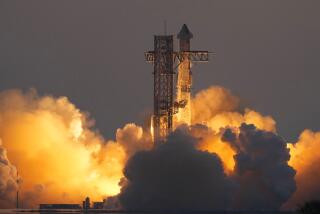SpaceX rocket launch sends advanced satellite into low orbit, brings booster back to Earth

Early risers on California’s Central Coast and parts south were treated to a rocket launch Thursday morning, followed by a sonic boom.
SpaceX launched a weather satellite into low Earth orbit from the Vandenberg Space Force Base in Santa Barbara County at 7:25 a.m. Roughly 8 minutes later, the booster safely returned to Earth a little lighter after its payload separated in low orbit. The rocket’s launch and return was livestreamed and marked the 279th landing of an orbital rocket, according to SpaceX.
The United States Space Force mission carried out by SpaceX was considered a success and marked the company’s second national security mission for the year.
The spectacle was visible, and audible, to people in parts of San Luis Obispo, Santa Barbara and Ventura counties.
The first stage of the company’s Falcon 9 rocket caused a sonic boom — which has been known to startle people — after the booster broke the speed of sound on the way down.
Instead of crashing to earth, the rocket fired again and powered itself to a soft — but very hot and smoky — landing.
Falcon 9 was the first reusable rocket to reach orbit, according to the company, and being able to use it repeatedly drives down the cost of space flight. Thursday’s mission marked the third launch for the reusable booster rocket, which helped get two previous Starlink missions into low orbit, according to SpaceX.
Debris from a Chinese spacecraft lit up the SoCal sky early Tuesday. Space junk is of growing concern as low earth orbits get increasingly clogged.
The satellite Falcon 9 carried is designed to monitor weather and environmental conditions such as sea ice, snow depth, soil moisture and wind.
More to Read
Sign up for Essential California
The most important California stories and recommendations in your inbox every morning.
You may occasionally receive promotional content from the Los Angeles Times.













